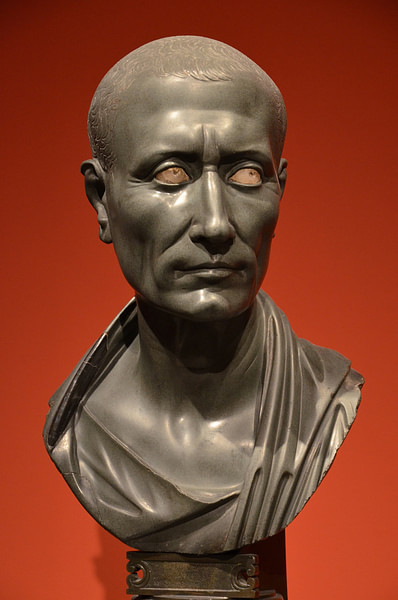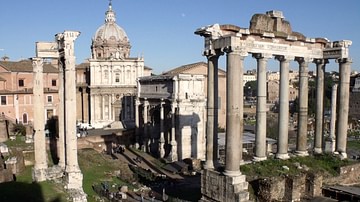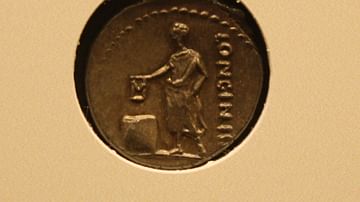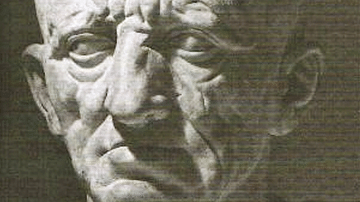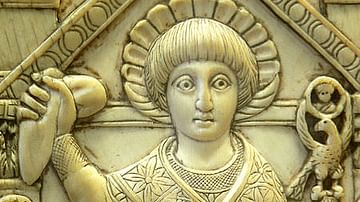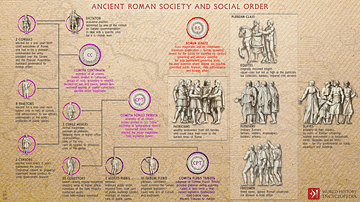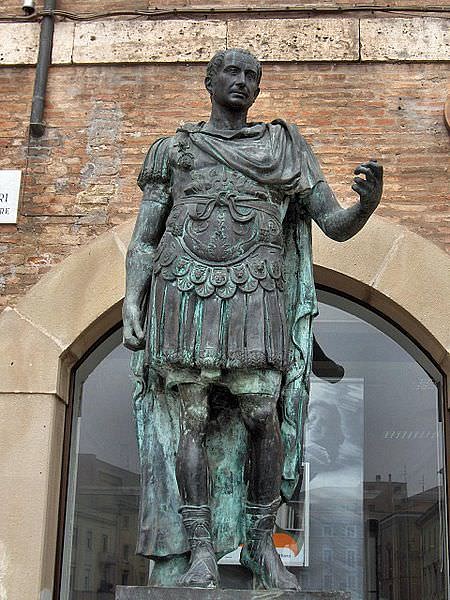
The Aedile was an official of the Roman Republic who maintained Roman roads, supervised the grain and water supply, and provided the city's citizens with games among other duties. Initially, they were plebeian and elected annually by the Concilium Plebis or Council of Plebs, but from 367 BCE, two aedile curules of the patrician class joined their plebeian colleagues. The role evolved and expanded during the Roman Republic, and the office of aedile was often seen as an integral part of the cursus honorum, one step on the path to become a consul. With Augustus assuming many duties of the aedile himself and the rise of the Roman Empire, the office disappeared.
Evolution of the Role
The Roman people emerged from the rule of the Etruscan kings with an innovative form of government: a republic. The aristocratic families - the patricians - created a three-branch system that contained a centuriate assembly, a Senate, and two co-executives called consuls. These consuls were elected by the assembly, and, while only serving a one-year term, had the power of a king. However, the growth of the city and the burden of administering the newly acquired provinces along the Mediterranean Sea called for additional magistrates to assume some of the powers of the consul. Among these new officials were the praetor who dispensed justice, the quaestor who handled financial affairs, and the aedile who (among other duties) maintained Roman roads, supervised the grain and water supply, and provided the city's citizens with games.
While some evidence indicates the office existed under the Etruscans as a caretaker of records and public monies, the aediles - initially two were chosen from the plebeian class - surfaced during the Republic as subordinate officers to the tribunes of the plebeians, supervising the temples and plebeian cults, Ceres and Diana in particular. They were elected annually by the Concilium Plebis or Council of Plebs. In 367 BCE two aedile curules were created and, unlike their fellow plebeian aediles, they came from the patrician class and were elected annually by the centuriate assembly. These latter aediles eventually became magistrates and part of the cursus honorum. The role of the aedile was expanded to include maintaining the cura urbis or fabric of the city (the roads, public buildings and police force) and the cura annonae or city's grain supply. And, if the need arose, he would assume some of the duties of the censor. But most importantly, they were placed in charge of the many annual festivals and public games. Later, the office of aedile curules became available to plebeians, and after the admission of plebeians to the rank, it was held alternately by both patricians and plebeians.
Although not essential, the office of aedile was often seen as an integral part of the “Path of Honors”, one step on the path to become a consul. An individual might begin his climb as a military tribune, eventually rising to the office of quaestor. If he were a plebeian, he had the option of becoming either a tribune of the plebs or an aedile. However, if he were a patrician, his only option was to become an aedile. From there, if he was successful and impressed the appropriate people as an aedile, he could become a praetor, the only other officer beside the consul with imperium powers. Lastly, if he had been successful and, like some, bribed the right individuals, he would become a consul, the pinnacle of a politician's career.
While an ambitious aedile received the usual government allowance to perform his duties, it was not always sufficient, especially if he planned on becoming a consul. Often, he would have to use personal money or borrow heavily to curry favor with those in the assembly and Roman Senate, staging elaborate gladiatorial contests and public games. If successful, he would advance; if not, he was politically ruined.
Julius Caesar as Aedile
One of the most successful of the aedile curules was the future dictator and hero of the Gallic Wars: the 35-year-old Julius Caesar. Few in the Roman Republic could match his determination and ambition to achieve the consulship. Since he came from a patrician family, he could not become a tribune of the plebs and therefore set his sights on the office of the aedile. In 65 BCE, as one of the aediles, he handled everything from road repairs, temple maintenance, urban crime, and distribution of grain and water, but his best service to Rome came through his staging of public games.
Borrowing money and placing himself deeper in debt, he organized a massive September celebration of the Roman god Jupiter, much to the chagrin of his fellow aedile, Marcus Bibulus. He decorated the Forum and Capitoline Hill (the location of Jupiter's temple), held public banquets, wild beast contests, elaborate stage productions, and extravagant gladiatorial competitions; he even had 320 pairs of gladiators shipped to Rome. His opposition in the Senate, the more conservative optimates, denounced him. In his The Twelve Caesars Suetonius wrote, "Caesar … had collected so immense a troop of combatants that his terrified political opponents rushed a bill through the House, limiting the number of gladiators that anyone might keep in Rome…" Despite what those in the Senate felt, the public loved him; he would soon earn the position of praetor and later that of a consul.
Unfortunately, the office of the aedile, like that of the consul, disappeared under the rule of Emperor Augustus and the empire. Augustus assumed many of the duties of the aedile himself - many considered him a micro-manager - or assigned them to others. However, while the office existed in the Republic, it allowed Rome to run smoothly. The roads were kept up, the citizenry was fed, and everyone was kept entertained.
